An Introduction To Digestion
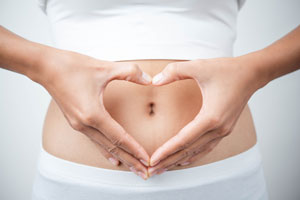
Digestion is one of the most important mechanisms in the body, and poor digestion can lead to painful or embarrassing issues such as stomach ache and gas. Such digestive system problems can be caused by a variety of factors including infection, poor diet, and premature ageing, and can lead to more serious problems such as fatigue or bloating – gradually lowering your confidence and making it more difficult to get on with your daily routine. Luckily, you can put a stop to your digestive system issues simply and effectively through a simple amendment to your daily diet.
Why Do I Feel Bloated?
While for some of us bloating and gassiness is limited to occasional overeating during holidays and in parties, there are many men and women in the UK who experience bloating regularly. Presence of gas in the abdomen is a clear sign of an unhealthy digestive system. It can not only be extremely uncomfortable but can also be a cause of social embarrassment. If you complain of gas and bloating regularly, then it needs immediate attention. Here we discuss some common causes of bloating and learn the ways to fix it:
Gas in the abdomen:
After overeating, gas in the abdomen is one of the most common causes of bloating. Drinking carbonated beverages and eating certain kinds of foods can increase gas build up in the intestine. Food rich in sugar and soluble fibre can make you a little gassy. Broccoli, radish, onion, cabbage, beer, diet sodas, beans, and cheese are some of the common gassy foods that we eat every day. So, if you experience bloating frequently, avoiding these foods might be helpful.
Extra fat in tummy
Fat deposition in the abdominal area can be a reason for bloating. Excessive alcohol consumption and cigarette smoking can increase the fat deposition. So, if you're experiencing gassiness because of excess fat, consider shedding some pounds and work on your bad habits.
Constipation and Irritable Bowel Syndrome can also cause bloating and disrupt your digestive system health. Treating or addressing these conditions can give you respite from bloating.
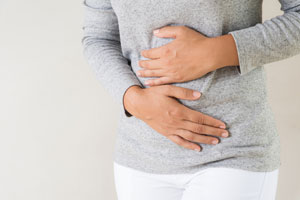
Types Of Digestive System Problems
Digestion problems like gas, bloating, constipation and heartburn are more common than you think. Blame it on unhealthy food habits or lack of physical activity, digestion problems are on the rise. Here are some digestive system problems that you can be affected with:
GERD
Gastroesophageal Reflux Disease commonly known as acid reflux usually affects you at night or after meals. It's the burning or pain you feel in the middle of your chest and is usually triggered by certain foods or beverages that produce acids in the body and cause inflammation of the oesophagus. If you're experiencing a sour taste in the mouth and heartburn or acid reflux frequently during the week, you need to consult your doctor to avoid severe cases of GERD or prevent oesophageal cancer.
Irritable Bowel Syndrome
People with Irritable bowel syndrome (IBS, or spastic colon) often complain of frequent diarrhoea or constipation and bloating. IBS can also lead to sexual dysfunction and depression. Taking probiotics, soluble fibre supplementation and herbal remedies can help provide relief. Dietary changes are also essential to overcome discomfort. Increasing physical activity or doing yoga is also believed to help people with IBS. Crohn’s disease and ulcerative colitis are types of digestive system problems that show similar symptoms like IBS.
Celiac disease
This condition is identified by an inability to tolerate gluten products as it causes inflammation and pain in the small intestine. Common signs include bloating, foul-smelling stools, diarrhoea, vomiting, constipation and abdominal pain. In most cases, the symptoms and discomfort is eased by avoiding gluten products like barley, rye, or wheat but consuming these accidentally can lead to a flare-up.
Haemorrhoids
Though haemorrhoids aren't exactly the cause of digestive system problems, issues in digestion can lead to inflammation of the blood vessels at the end of the digestive tract. This condition causes severe discomfort and blood is observed in the stool in some cases. Lack of fibre and constipation can lead to this condition which can be prevented by consuming a fibre-rich diet. Here’s all that you need to know about haemorrhoids and its treatment.
Constipation
Constipation is a sign of changes to your digestive system and can leave you feeling bloated, uncomfortable and lethargic. Constipation is a very common ailment that will affect most of us at some point in our lives. Generally, people with constipation find it harder to pass stool, leading to a variety of troublesome and uncomfortable side effects. Whilst the pattern of bowel movements varies between individuals, you'll be able to tell if you’re constipated because your bowel movements will be limited and may stop altogether.
As well as causing uncomfortable side effects like bloating, abdominal pain and fatigue, constipation hardens excrement which can make it painful to pass.
More On Constipation
A healthy digestive system is crucial for a fit and healthy body. Efficient digestion is an essential measure of good health and wellness, and one of the key indicators of digestive system dysfunction is constipation. Constipation is estimated to affect 1 in 7 adults and 1 in 3 children. It usually affects older people though, as the intestinal muscles weaken over time and many prescribed medications taken by the elderly can cause constipation.
What are the effects of Constipation?
You’ll usually know if you’re constipated. The symptoms are easy to spot, and the best indication of constipation is reduced bowel movements and the inability to pass stool. Other common symptoms include stomach cramps, a hard and bloated stomach, sluggishness and fatigue.

What causes Constipation?
There's no direct cause of constipation, but rather a variety of small contributing factors. These include poor and limited diet, digestion problems, inactivity and a lack of exercise and dehydration. It has been found that a low-fibre diet may also increase the risk of constipation.
Rarer causes of constipation include spinal injuries, multiple sclerosis, stomach and kidney problems. Other rare causes include pregnancy, too much calcium in the blood and the use of various prescribed medicines. If you suffer continuous changes to your bowel movements for a week or 2, it’s important to go to a doctor for a medical examination.
How can constipation be prevented?
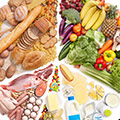
Balanced Diet
A healthy balanced diet is essential for digestion, general health, fitness and wellbeing. Following a balanced diet can reduce the chances of getting constipated. If you're suffering from constipation, try to increase your fibre intake and eat natural, unprocessed foods such as fresh meat, whole grains, fruit and vegetables that improve digestion.

Stay Hydrated
Dehydration is a common cause of constipation. Keeping your body hydrated is essential, and can be easily achieved by drinking plenty of water, preferably 2-3 litres each day. Hot, healthy drinks like natural tea and coffee can also help to soften to stool and encourage bowel movement.
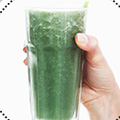
Body Cleansing and Detox
It’s important to flush out any toxins and impurities from your body to remain healthy. Constipation can be caused by poor diet and regularly consuming unhealthy, processed foods. You can naturally detox by improving your diet and using natural remedies or solutions for better digestion.

Regular Exercise
Regular physical exercise improves your health and fitness levels and aids digestion. By exercising regularly, you can enhance the efficiency of your digestive system and ensure you don’t get constipated.
How can Constipation be treated?
Constipation can be hard to treat. Often, it will naturally subside within a few days, and the best way to encourage bowel movement is by eating healthily, drinking plenty of water and exercising as much as you can so that digestion is smooth. There are many natural treatments and remedies you can use to manage the symptoms of constipation, encourage bowel movement and better digestion. If you're constipated for more than a few days, go and see your doctor.
6 Tips To Improve Your Digestive System Health
Healthy digestive system is the key to a healthy life. But a sedentary lifestyle, eating fast food and a lack of exercise has taken a toll on our digestive system health, and this is a reason why we complain about problems like gas, bloating and irregularity every day. We've compiled a list of a few steps you can take to improve your digestive system health and the functionality of your digestive system:
1. Drink plenty of water - Water is probably the best thing for your digestive system. It not only helps dissolve fats and soluble fibre but also helps flush toxins out of your body, improving your overall health. Drinking water (plain or in the form of other fluids) aids digestion, maintains normal bowel function and prevents constipation. It's advised to drink 8 glasses of water every day for a healthy body. You can also fulfil the water requirement of the body by eating fruits and vegetables that have high water content.

2. Consume fibre rich diet - To get everything moving smoothly in your intestine, it's essential to consume a lot of fibre. When you eat less fibre, you're likely to experience constipation quite frequently. Fibre-rich foods include wheat bread, legumes (kidney beans, lentils, and black beans), fruits (apple, mango, strawberries, raisins, and pear) and nuts (walnut, peanut, and pistachio). Consuming an adequate amount of fibre in your diet also aids digestion and helps reduce the risk of haemorrhoids and irritable bowel syndrome.
3. Cut down on fatty food: - Fatty food is considered unhealthy not only because it makes us put on weight, but also because its digestion is difficult. Excessive consumption of fats can slow down your digestion, making you prone to gas, bloating and constipation. But this doesn’t mean that you stop eating fats completely. There are fats that are essential for our body, so don’t cut them off completely and just switch to low-fat products.
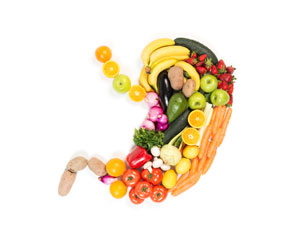
4. Schedule your meals - Eating at regular intervals not only improves your metabolism, but it also aids digestion. Experts believe that it's better to sit down for breakfast, lunch, dinner around the same time every day to bring your digestive system on track. Also, it's advised that you avoid eating on the run. Sit and relax while you take your meal to promote proper digestion.
5. Maintain a healthy weight - Increased weight puts excessive pressure in your abdominal area, making you prone to gas and heartburn. Indulge in physical activities like walking, swimming and running to shed excess pounds in order to improve overall well-being.

6. Natural solutions - While the lifestyle change mentioned above should help your recovery from digestive system problems, not all conditions can be solved so easily – and in those cases, you may wish to use natural digestion products. These come in the form of pills or capsules and potentially offer quick and effective relief from any digestive system discomfort, helping you to rid your body of any unwanted symptoms as soon as they have been diagnosed – plus, you can be sure you won’t suffer any unwanted side-effects.
The Final Word
It’s important to bear in mind that while most digestive system conditions are mild, there’s a small minority which can be life-threatening if left untreated – if you’re worried or unsure about which product to use, we recommend consulting a doctor prior to treatment as they’ll be able to discuss your options and decide on the best course of action to suit your needs.
Many people find relief from digestive problems by avoiding foods that have caused them problems in the past. If you’re unsure which foods might not agree with you, try eliminating certain foods from your diet to see if it has a positive effect. Indigestion affects our body and immune system in the same way that poor nutrition does since it makes it harder for our bodies to absorb essential vitamins and nutrients from food. This is why good digestive system health is so important.

